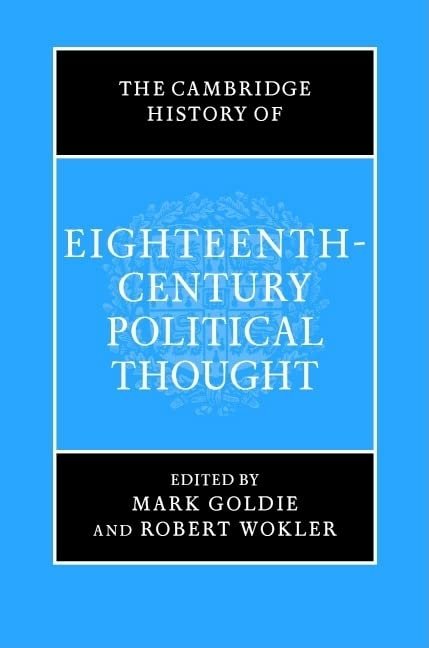Robert Wokler
Obituary by Joshua Cherniss,
2006.
Robert Wokler at the Plamenatz Symposium in Podgorica in March 2000.
Robert Wokler, who has died of cancer aged 63, was a leading interpreter of 18th-century political thought. Cosmopolitan by background, he was based principally at universities in Britain, where he greatly enriched scholarly life. His singular contribution lay in showing how the political thought of the Enlightenment was influenced by developments in anthropology, linguistics and music. His writings gracefully combined empathic insight and unequalled erudition with a deep love for the intellectual culture about which he wrote, and an often implicit political and moral passion; politically active in his youth, he was later outspoken in his calls for intervention against genocide in Bosnia. He saw in the Enlightenment a profound response to experiences of religiously-inspired violence all too similar to the events of his own time; he believed that the Enlightenment's calls for toleration and personal freedom, and its opposition to sectarianism and fanaticism, remained urgently needed. This outlook was shaped by Wokler's own experiences. His parents, Isaac Wochiler, a Polish citizen who had lived in Germany, and his wife Ilona, Hungarian but brought up mainly in Austria, were victims of such oppression, both as Jews and political radicals.* They met as refugees from the Nazis in Paris, and fled to Vichy France: Robert was born in Auch, near Toulouse. Having a young child made it possible for his father and mother to gain entry to Switzerland: thus, aged three months, Wokler saved his parents; his grandparents were not so fortunate. Following the liberation, the family settled in Paris, and later in San Francisco. After this peripatetic childhood - which set the pattern for his later life - he began musical studies at the University of Chicago, where an encounter with the famed scholar Leo Strauss redirected Wokler to his life's work: the history of political thought. Upon receiving his BA in 1964, Wokler - at Strauss's suggestion - went to study with Michael Oakeshott and Maurice Cranston at the London School of Economics, receiving an MSc in 1966. From there he went to Nuffield College, Oxford, earning a DPhil in politics (1968) with an original study of Rousseau.
Robert Wokler at Nuffield College, Oxford. Wokler is standing in the back row, number five from the left.
His supervisors at Oxford, Isaiah Berlin and John Plamenatz, were fellow refugees who profoundly influenced him, and to whom he was devoted; his own work combined the wide-ranging, dramatic sweep of Berlin with the scrupulousness and sensibility of Plamenatz, whose literary executor he became. His revised and expanded edition of Plamenatz's classic Man and Society was published in 1992; a volume, co-edited with Joseph Mali, on Berlin's thought appeared in 2003. After appointments at Magdalen College, Oxford (1967-71), and the University of Reading (1968-71), Wokler began teaching at Manchester, where he became reader in the history of political thought in 1994. At the same time, he held fellowships at Sidney Sussex and Trinity colleges, Cambridge, where he assisted with (and completed) Ralph Leigh's edition of Rousseau's correspondence. The erudite and exacting Leigh became the third great intellectual influence, with Berlin and Plamenatz, in Wokler's life. Wokler dearly wished to follow Leigh in becoming a research fellow at a Cambridge college; but this was not to be. While at Manchester, he held visiting appointments at Princeton and Uppsala; after taking early retirement in 1998, he spent his later years first at Exeter, then at Yale, with regular visits to Budapest. He became renowned for presenting subtle and original scholarship accessibly and stylishly, lecturing with virtually no notes and without hesitation, deviation or repetition.
Yet, though creative and prolific, Wokler did not complete many of the ambitious projects, ranging from ancient to 20th-century political thought, which he undertook. An elegant, vivid introduction to Rousseau (still in print, and translated into seven languages), a published version of his Oxford thesis, and a number of articles and co-edited collections (among them Rousseau and Liberty, Inventing Human Science, The Enlightenment and Modernity, and an edition of Diderot's political writings) stood in for the major works on Rousseau and the Enlightenment that he hoped to write. Happily, he was able to complete the forthcoming Cambridge History of Eighteenth-Century Political Thought (co-edited with Mark Goldie) last year.
Wokler was the most sympathetic and delightful of friends, the most sparkling, amusing and ebullient of conversationalists; he was also an acutely sensitive and deeply private man - Diderot and Rousseau rolled into one. The companionship and support of American friends he met late in life was an unexpected blessing and, with the affection of older friends and the devotion of his family, a comfort in his last years, which were overshadowed by illness. Though much of his work was shaped by the times, Wokler's own values, tastes and manners were those of an earlier, more civilised and graceful world than that which he inhabited, and in many ways deplored - and to which his example stood as a dignified, restrained, but determined rebuke.
* Wokler’s mother was in fact stateless. Although she was born in Budapest, she wasn’t considered Hungarian.







